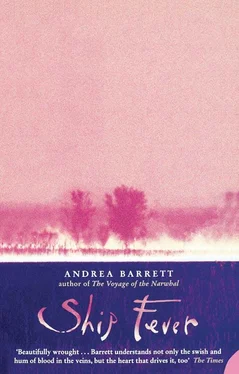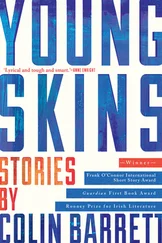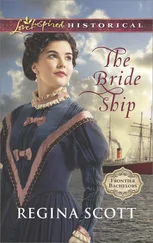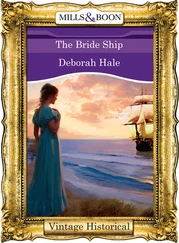Leo smiled and kept his secrets and established acres of gewurztraminer, which Couperin couldn’t grow, and rkaziteli, a Russian grape temperamental for everyone but him. The girls grew up hearing words like these: foxy, oaky, tannic, thin. Like all children, they knew more than they knew that they knew.
In the fall the cold air slipping down from the hills hung white and even below the trellises. Leo’s winery thrived, and his oldest son — Theo, the girls’ father — threw himself into the business with a great and happy passion. Peter Couperin, Walter’s heir, field-grafted Seyvals onto half his Concord stock, and still Theo outdid him.
The girls’ mother, Suky, told them this, along with much else; she was herself the daughter of another winemaking family. When the girls were still quite small, she said, “Your father named you red and white, like girls from a fairy tale.”
So they were Rose and Bianca, Bianca and Rose: inseparable. Or so they thought. In the white house in Hammondsport, on the western shore of Keuka Lake, their names formed a single word in their mother’s mouth, like the name of one of Leo’s grapes. RoseandBianca, they heard, as she called them in for dinner. “You were lucky,” Suky said, “that you weren’t named Merlot and Chardonnay or Cabernet and Aurore.”
In other ways they were not so lucky. When Rose was ten and Bianca almost nine, a tourist speeding down the lakeshore road struck their strolling mother and killed her instantly. Suky Marburg, the headstone read. Beloved wife of Theo; cherished daughter of Alice and Charles; adored niece of Agnes, Marion, Caroline, and Elaine. Nothing about “Missed Mother of,” and they were thought too young to attend the funeral. Yet who could miss her more?
After that they were wild girls, in a place that seemed like wilderness. Suky’s Aunt Agnes came to care for them; a loving woman, but soon she took sick and spent her days perched on the porch glider while her mind disintegrated. When she called the girls she said, Rose? Bianca? the long pause between the two names another bewildered question. Meanwhile the girls’ teachers called them holy terrors and the neighbors referred to them as “the Marburg sisters,” which term connoted nothing so kind as their mother’s fusing of their first names. Even before her death they’d been unusually close. Afterwards they seemed like the two sides of a coin, easy to distinguish but impossible to split. Much of what they did together is best passed over.
Despite their disgraceful scrapes, they whizzed through school at a frightening pace. A strange rivalry drove them, darker and more serious than the one between the wineries — some sort of competition for the scraps of their father’s attention. When he allowed it, they helped him out in the winery. Most often he ignored them and they worked on their own projects. A chemistry set appeared one Christmas, along with this information; yeast enzymes, he said, were the proteins made by yeast, which made winemaking possible. The girls made wine from grapes and honey and different flowers and once from rhubarb, for a lark.
From a book full of mysterious pictures, they learned about the uses of hair and eggshells and feces and worms, herbs and the blood of a red-haired man. They painted black the walls of their room and then hung pictures they snipped from their books; alchemists’ labs juxtaposed with models of DNA and the three-dimensional structure of hemoglobin. Their father turned dirt and sunlight into wine; was that alchemy, or chemistry? Either one might turn their isolation into freedom.
And so of course they studied biochemistry in college, first Rose and then Bianca right behind her. Both of them gawky and geeky and barely sixteen when they entered. And of course they were entranced by the equipment and the theories, which made their earlier experiments seem childish. They never dreamed that they wouldn’t work together.
In college they shared lovers and books. In graduate school, before Bianca dropped out, they wrote two papers together. Now Rose studies enzyme structure and kinetics at a research institute outside Boston; she has several grants and two technicians, although she’s still younger than some of her graduate students. A whole section of her address book is devoted to Bianca — San Diego, Vancouver, Alaska, Hawaii. All places Rose has never been. Bianca does different things, which vary from year to year and are hard to explain.
That’s the short version, the dry version — of course the details differ, depending on which of us tells it. Still, anyone could tell that version of our history to a stranger in a bar, and both of us have done so. Oh, look, in effect we say wryly. A dead mother, a crazy great-aunt, a distant father. But here we are. All the shameful details buried, all the juicy parts elided; both of us grown now, no big deal.
Good enough for strangers. But once we were closer than twins, and there were times, with the width of a street or a country between us, when we wondered why this version of our history didn’t account for how we drifted so far apart. The drift was far from steady, but it was persistent.
On an August night in 1980, we made a fumbling attempt to find our way back to each other. Our evening included drugs and drink and voices and visions, a lot of water and a dog. Later, we’d look back on it as a time of preparation that failed in most ways but succeeded in a few, which helped us endure the loss to come. The story of this night forms a sort of pendant to our early history. [2. Alchemy]
As Bianca drove from state to state while meaning only to reach Boston, she’d been thinking about the dead. The road beyond the cone of her headlights had been as black as a lake, and from the corner of one eye she had seen faces: Suky, Agnes — almost as if Rose had been beside her in the car. This had suggested a plan to her, for which she needed Rose’s help. By ‘the time she arrived at the institute’s low white building, she was bursting with things to say. But before she could reach her sister, a man in a uniform stopped her in the lobby.
“Miss?” he said politely. “Miss?”
He blocked her with his body. “I’m sorry,” he said. “Visitors must be accompanied past this point. May I ring someone’s office for you?”
“My sister,” Bianca said.
“And your sister would be?”
“ Rose, ” Bianca said huffily. When he still waited she said, “Rose Marburg. ”
The man took her name and repeated it into the phone. A few minutes later a pair of doors opened with a hermetic sigh and Rose appeared in the lobby. Her dark hair was cut very short; her hands were in the pockets of her long white coat and she had a nametag pinned to her chest. For a minute Bianca wasn’t sure who she was.
Rose, who’d run from the lab to the lobby as soon as she got the call, suspected trouble right away. “What is it with that guy?” Bianca said. “How come he couldn’t see we were sisters?” Then, as they passed dark labs and offices, Bianca described how she’d been brooding about Suky and the accident and their lumpy impossible childhood.
That old story, which Rose already knew. At the moment all she wanted to do was fend off Bianca’s rush of words.
“Isn’t it obvious?” Bianca said. Although she was tall and fair and Rose was dark and slight, she couldn’t understand why that man at the door hadn’t seen their resemblance at once.
“Wally,” Rose said to her babbling sister. “His name is Wally. He was just doing his job.”
“Wally, schmally,” Bianca said. “He should have known who I was. When did you cut your hair so short?”
Rose led Bianca into her lab. Gleaming benches and rows of glassware; a tidy office in which a computer screen glowed. She didn’t stop to show Bianca all the gadgets in the lab; Bianca had been here before and knew how to use them as well as Rose did herself. In her office she guided Bianca to a chair. “I wasn’t expecting you,” she said, interrupting Bianca mid-sentence. “Is everything all right?”
Читать дальше
Конец ознакомительного отрывка
Купить книгу












